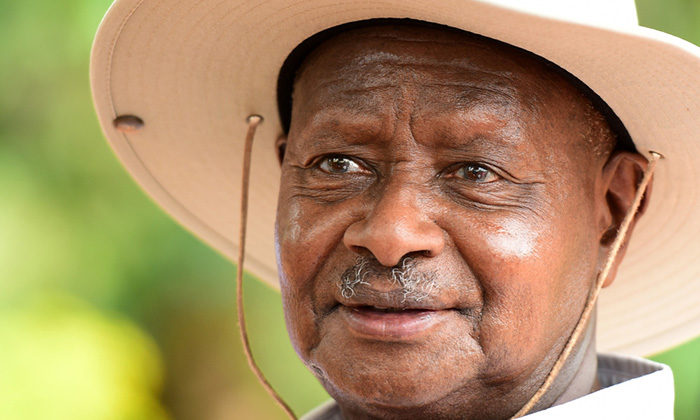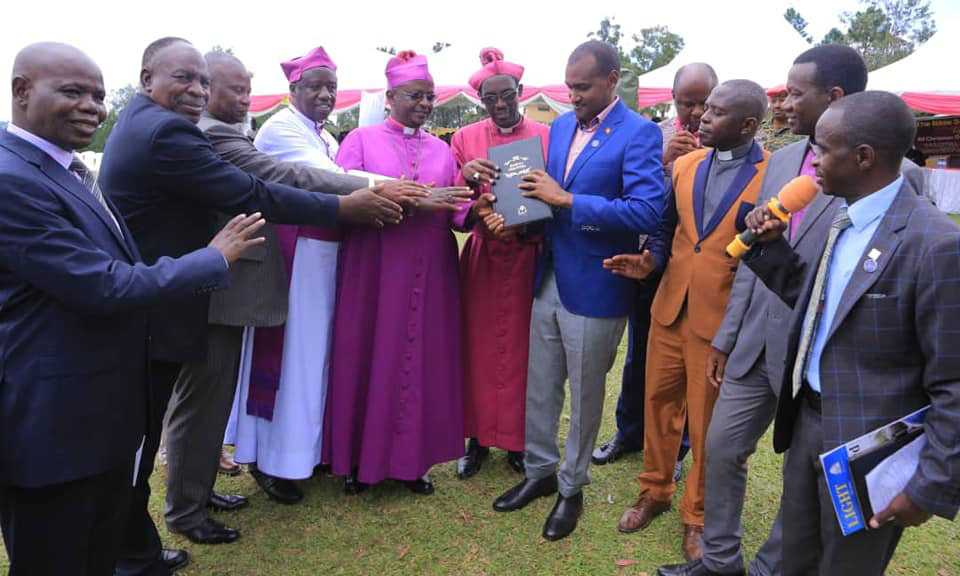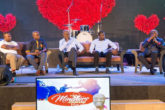
Hundreds of tribal groups go through life without a copy of the Bible in their own language. In response to this need, President Yoweri Kaguta Museveni has explicitly endorsed efforts by the Bible Society of Uganda to translate scriptures into other local dialects.
Speaking during a celebration marking 55-years since the English Bible was translated into the local dialect of Runyankole/Rukiga, Presidet Museveni thanked the Bible Society of Uganda for “valuing traditional languages in the teaching of scripture.”
Museveni’s speech was read out by the current Minister of Gender, Labour and Social Development Mr Frank Tumwebaze at Mbarara Boma Golf Course on 22 February, 2020.
The celebrations brought together Christian leaders from several denominations (Anglican, Catholic, Pentecostal and Seventh-day Adventist), including Dr Sheldon Mwesigwa, the Bishop Ankole Diocese and His Grace Paul K. Bakyenga, the Archbishop of Mbarara Archdiocese and member of the Board of Trustees at Uganda Bible Society, and Bishop Nathan Ibrahim, of Daystar Cathedral – Mbarara.
Speakers at the function revealed that the translation of the English Bible into the Runyankole/Rukiga dialect was initiated by missionaries from Britain led by Rev. Jim Stanley Smith in the 1950s.
Uganda had the first full English Bible translated into Rutooro/ Runyoro language followed by Luganda and later Runyankole/Rukiga.
Towards the end of the event, the Bible Society of Uganda launched a Study Bible project that will help Christians learn/ study and understand the bible.
Mr Frank Tumwebaze receive a badge from His Grace Archbishop Bakyenga as a life-member of the Bible Society of Uganda.

Key facts about Bible access: United Bible Societies
5.6 billion people now have access to the full Bible in their language, yet more than half of the world’s languages still have no Scripture at all. This is the encouraging and challenging overview of the Bible translation landscape at the start of 2019.
Of the 7,350 languages in the world, the full Bible is now available in 692 languages used by 5.6 billion people. That means around 1.5 billion people do not have the full Bible in their language. However, 1,547 languages used by 805 million people have the New Testament, and shorter portions of Scripture are available in a further 1,123 languages used by 411 million people. That leaves 3,988 languages used by 246 million people without any Scripture.

